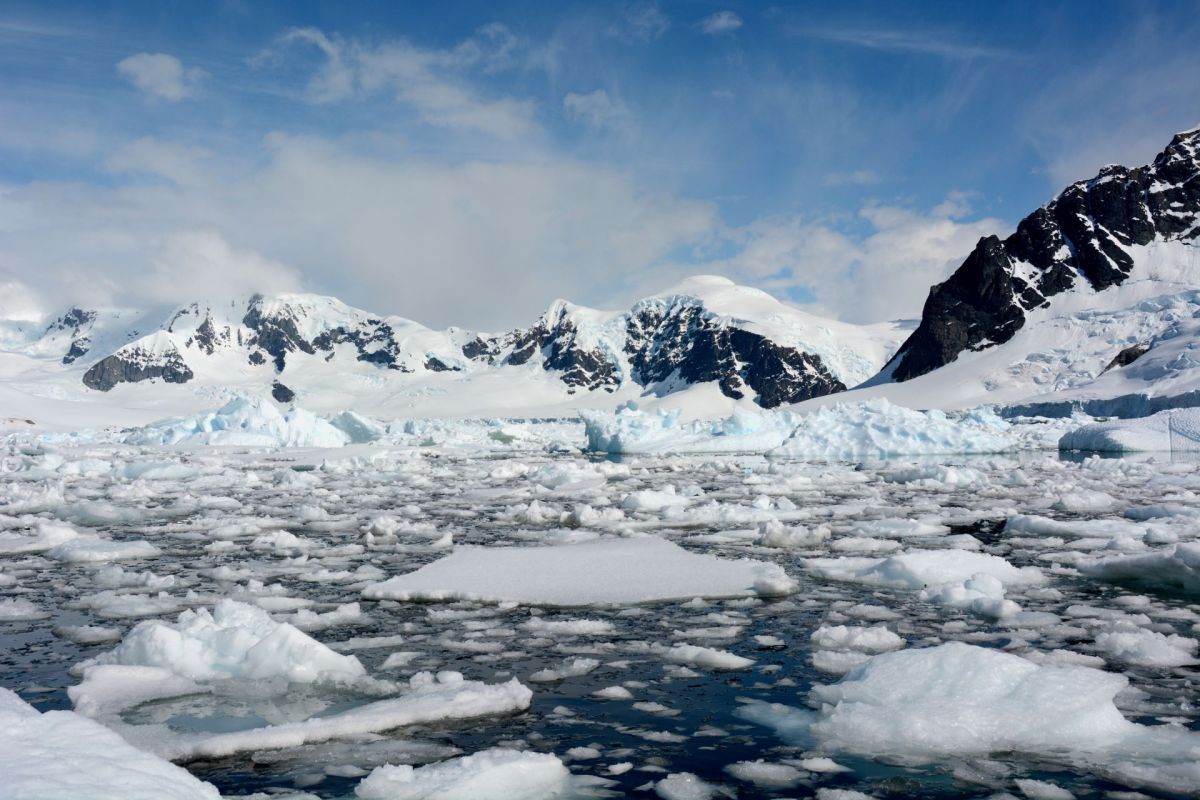Melting Antarctic ice has slowed an important ocean current that helps regulate the Earth's climate, and scientists are worried about the consequences, including rising sea levels and changing weather patterns.
What's happening?
A recent study revealed that a deep ocean current called the Southern Ocean overturning circulation has slowed down by about 30% since the 1990s. According to the Guardian, this current is important in regulating the Earth's climate, including rainfall and warming patterns, along with how much heat and carbon dioxide the oceans store. What's more, scientists expect a 40% slow down by 2050.
The circulation starts in the frigid and dense waters located deep off of Antarctica's continental shelf. It spreads to other oceans from there, carrying oxygen to the deep ocean and bringing much-needed nutrients to the surface.
The Guardian reports that researchers say the slowing trend is due to global heating, which is causing Antarctic glacial ice to melt at a faster rate. This, in turn, adds freshwater, making the seas increasingly buoyant.
Why is the slowing ocean current concerning?
The slowing circulation could have cascading negative impacts, including rising sea levels and changing weather patterns, and it could deprive underwater ecosystems of nutrients.
"Changes in the overturning circulation are a big deal," the study's co-author, oceanographer Steve Rintoul, told the Guardian. "It's something that is a concern because it touches on so many aspects of the Earth, including climate, sea level, and marine life."
For one thing, it could cause "miserable weather" for places like the United Kingdom and Western Europe, Shenjie Zhou, a physical oceanographer at the British Antarctic Survey, told Wired.
It could also accelerate global warming because of the slowing absorption of heat and carbon dioxide in the world's oceans. Plus, it could impact food security and threaten marine animals.
What can I do?
"Unless we act soon we will commit ourselves to changes that we'd really rather avoid," Rintoul told the Guardian. "We need to act to reduce emissions, and we need to do everything we can as fast as we can."
For ordinary citizens, that means taking actions to reduce environmental impact. Simple ways to do this include switching off lights when they're not in use, taking the stairs instead of the elevator, riding a bike or mass transportation instead of driving, doing full loads of laundry, and maintaining a moderate room temperature.
But that's not enough. Government policy is an important piece of the climate puzzle, and according to Yale School of the Environment, "Strong public demand increases the likelihood that governments will prioritize climate change action."
That means it's time to put pressure on government officials. You can do this by contacting them directly or by joining an environmental organization campaigning for climate policy, such as the Sierra Club.
"With drastic action, we could probably stop that slowdown from being a full collapse," oceanographer and climate scientist Matthew England told Wired. "But it's pretty tight."
Join our free newsletter for weekly updates on the coolest innovations improving our lives and saving our planet.









